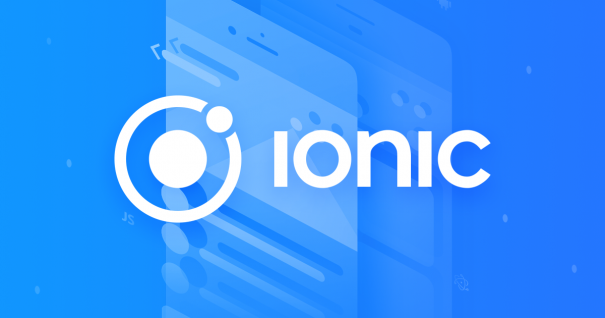Mobile apps have become a must for many businesses across various industries and it’s essential that applications run seamlessly on both iOS and Android. By leveraging the cross-platform mobile development approach, you can create such solutions quickly and cost-efficiently.
Let’s talk about the pros and cons of cross-platform app development and discuss the top mobile app development frameworks you can use to build multi-platform mobile solutions.
Enjoy the advantages of a mobile presence with SaM Solutions’ cross-platform mobile development services.
What Is Cross-Platform Development?
While native development relies on tools and programming languages designed specifically for one platform (Objective-C and Swift for iOS apps, Java and Kotlin for Android solutions), cross-platform development aims at creating a single application that runs identically on both platforms.
To code cross-platform software, developers use platform-agnostic technologies — Dart, C#, JavaScript (for near-native cross-platform development) and HTML, JavaScript, and CSS (for hybrid development). None of these languages are native to devices and OSs. Then, with the help of popular frameworks for building mobile apps, the code is packaged into native containers that can smoothly communicate with Android and iOS systems.
Near-native and hybrid applications can have an almost native look and feel due to the combination of native code with independent code that’s suitable for multiple platforms. Developers write the code of the app logic once and then reuse it, thus making it possible to release a product quickly.
Native vs. Cross-Platform Apps
With both native and cross-platform development approaches, there are advantages and disadvantages that can suit your project depending on your needs and use case scenario.

When creating native applications, developers are guided by specific OS requirements. Installed on a targeted device, a native app can fully use the available features and capabilities. The obvious drawback is that a native app is not compatible with other platforms. To reach wider audiences, you would need to develop several solutions (one app for each targeted platform), which is time-consuming and cost-intensive.
Pros and Cons of Cross-Platform Mobile Development
Multiplatform mobile app development is continuously evolving due to emerging technologies. It’s becoming more dynamic and attractive for developers, mostly due to the rise of near-native frameworks for mobile app development.
Benefits:
- Creating separate native apps for each platform is expensive, while a cross-platform application uses a single shareable code, which helps you keep within your budget.
- Costs are reduced since only one team of programmers is required to develop and maintain an app. What is more, basic knowledge of standard languages is sufficient — development tools will do the rest of the work.
- Cross-platform apps have a native look and feel, which is great for user experience.
- Hybrid development is definitely the way to go for companies that want to develop simple apps, attract users of various mobile devices, and release the product to market quicker at a lower cost.
Challenges:
- The more complicated code of near-native and hybrid solutions combines native and non-native components, which may affect the performance.
- Cross-platform applications (especially hybrid apps) can’t support all native-only functions and features of mobile devices, such as advanced graphics and animation or 3D effects. This results in limited functionality and poorer app design.
- When Google and Apple add new features to Android and iOS platforms, native solutions can immediately start using them. But hybrid apps have to wait until these updates are adjusted to the chosen cross-platform framework. Thus, there always will be an updating delay.
If you want to ensure you’re using the right approach that fits your requirements, check out our detailed native vs. cross-platform guide or reach out to SaM Solutions’ consultants.

Top Five Frameworks for Cross-Platform Mobile App Development
Depending on the tool you use, the process and deliverables of software development can vary. To create a native-like application, it is crucial to pick the right framework. We’ve compiled a list of the five best mobile app frameworks for cross-platform mobile development.
1. React Native

React Native is a free, open-source framework for building native applications for iOS and Android platforms using JavaScript and React, a popular web development library. It was developed by Facebook and has become one of the top cross-platform mobile development frameworks.
React Native allows developers to leverage their existing knowledge of JavaScript and React to build their applications, so Web developers can easily use React Native to create mobile apps without obtaining new programming skills.
React Native also offers a hot reload feature, which allows engineers to make changes to the code and see the results instantly, making the development process faster and more efficient. It also supports a wide range of third-party libraries and plugins, making it easy to add new features and functionality to a mobile application.
Take advantage of SaM Solutions’ strong React Native expertise to create smooth and high-performing cross-platform applications.
2. Flutter

Flutter is a free, open-source UI toolkit for building natively compiled applications for mobile, web, and desktop platforms from a single codebase. It was developed by Google and has gained popularity among developers due to its speed, performance, and ease of use.
Apart from enabling cross-platform mobile app development, Flutter also supports the creation of web and desktop applications. This makes it an especially versatile tool for cross-platform development. However, Flutter’s Dart language can create some challenges for the adoption of the framework since no engineers have used it before.
Like React Native, Flutter also has a hot reload feature, which allows developers to make changes to the code and immediately see the results. Additionally, Flutter’s widget-based architecture allows developers to create custom UI components that can be reused across different parts of the app, further improving mobile development speed and productivity.
SaM Solutions uses Flutter to help you rapidly and efficiently bring your apps to multiple platforms at a reasonable cost.
3. .NET MAUI (formerly Xamarin)

.NET Multi-platform App UI (MAUI) is a free, open-source platform for building cross-platform mobile apps, which is an evolution of Xamarin framework. This popular Microsoft cross-platform mobile app framework relies on the C# programming language complemented with .NET framework and is available under the MIT license as part of Visual Studio.
The development toolset of .NET MAUI includes the following components:
- MAUI project templates.
- XAML for defining UI and layouts.
- Styles and theming for UX/UI customization.
- Device APIs for accessing device-specific features, such as camera, geolocation, and sensors.
- Hot Reload.
.NET MAUI also offers a modern, component-based architecture that allows developers to improve development speed and code maintainability. Moreover, it supports a variety of app architectures, including Model-View-ViewModel (MVVM), Model-View-Controller (MVC), and Model-View-Presenter (MVP).
Stay Ahead of the Competition with a Xamarin App
SaM Solutions’ team delivers fast, feature-rich apps that captivate users and drive business growth.
4. Cordova (Adobe PhoneGap)

Backed by Adobe, PhoneGap is a distribution of the Cordova framework. This open-source mobile application development framework is usually regarded as the most popular tool for hybrid solutions, largely due to the fact that Cordova apps can be written in HTML5, CSS3 and JavaScript.
This hybrid mobile app framework also provides native plugins and containers for each mobile platform as well as allows C++ developers to create more features that gain access to device functionality (camera, microphone, accelerometer, file system, and more). After they’re created, Cordova apps run in a WebView browser inside a native container on the relevant platform.
5. Ionic

A popular UI SDK, Ionic is also among the best hybrid app frameworks. It bridges the properties that are in demand: it’s open-source, easily maintained, scalable, and easy to read. Ionic provides a library of HTML, CSS and JS components that help build highly interactive and visually appealing apps.
Ionic has a rich set of features and tools, including out-of-the-box support for material design, native-style mobile UI elements and layouts. It also provides its customers with regular updates and resources from the development community.
Ionic-based hybrid applications can have powerful features and customizable tools that enhance user-friendliness. However, they all rely on wrappers such as Cordova to run on a device.
How to Choose the Appropriate Near-native or Hybrid App Framework
The choice of the best solution for near-native or hybrid development depends on multiple factors, including:
- The complexity of the solution
- Developers’ skills
- The target time to market
- Available budget
Without taking these factors into consideration, it’s impossible to say which of these tools for near-native and hybrid mobile application development is the best.
If you are a small company or an independent developer who wants to create a very simple app in the shortest possible time, you can benefit from Ionic and Cordova. But if you need a powerful and competitive solution, you’re better off using React Native, Flutter, or .NET MAUI. At the same time, if your priority is smooth performance, high security, and a full stack of native features, then native app development is the most appropriate option.
Going Mobile Is Easy with SaM Solutions
Today, most companies create mobile versions of their websites to remain competitive. Cross-platform development is the most suitable solution for businesses as it allows them to efficiently create reliable applications that are compatible with all customer devices.
SaM Solutions provides a wide range of cross-platform app development services, including consulting, coding, replatforming (or migration), support and maintenance. We create mobile solutions according to each client’s individual requirements, which is why our customers always get the product that works best for them.
Contact our specialists for more information and they will help you get started with your cross-platform mobile app development project.
Reduce time to market and ensure best quality of your cross platform app with SaM Solutions’ development services.



















 The Latest 15 Information Technology Trends in 2024
The Latest 15 Information Technology Trends in 2024 Top 10 Embedded Software Development Tools
Top 10 Embedded Software Development Tools IaaS vs. PaaS vs. SaaS: What’s the Difference?
IaaS vs. PaaS vs. SaaS: What’s the Difference? IoT Development: Top 15 Internet of Things Tools and Platforms in 2024
IoT Development: Top 15 Internet of Things Tools and Platforms in 2024 10 Examples of Predictive Analytics
10 Examples of Predictive Analytics











